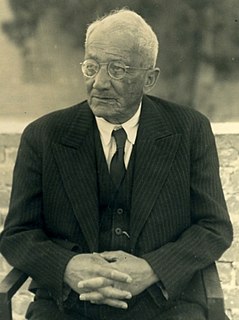A Quote by Abraham Lincoln
It has so happened in all ages of the world that some have labored, and others have, without labor, enjoyed a large proportion of the fruits.
Related Quotes
And, inasmuch [as] most good things are produced by labour, it follows that all such things of right belong to those whose labour has produced them. But it has so happened in all ages of the world, that some have laboured, and others have, without labour, enjoyed a large proportion of the fruits. This is wrong, and should not continue. To [secure] to each labourer the whole product of his labour, or as nearly as possible, is a most worthy object of any good government.
Some authors write nonsense in a clear style, and others sense in an obscure one; some can reason without being able to persuade, others can persuade without being able to reason; some dive so deep that they descend into darkness, and others soar so high that they give us no light; and some, in a vain attempt to be cutting and dry, give us only that which is cut and dried. We should labor, therefore, to treat with ease of things that are difficult; with familiarity, of things that are novel; and with perspicuity, of things that are profound.
First time I got arrested, I knew somehow and some way, we would succeed. To go on the Freedom Ride to be beaten and left bloody and unconscious, to be beaten on that bridge in Selma, have a concussion - I thought that I was going to die on that bridge. But somehow and some way, I lived to tell about what happened, and I've seen some of the fruits of the labor of so many people, and people must understand that.
There is the work of great men and there is the work of little men. Therefore it is said, 'Some labor with their minds and some labor with their strength. Those who labor with their minds govern others; those who labor with their strength are governed by others.'1 Those who are governed by others support them; those who govern them are supported by them. This is a universal principle.
My personal attitude toward atheists is the same attitude that I have toward Christians, and would be governed by a very orthodox text: "By their fruits shall ye know them." I wouldn't judge a man by the presuppositions of his life, but only by the fruits of his life. And the fruits - the relevant fruits - are, I'd say, a sense of charity, a sense of proportion, a sense of justice. And whether the man is an atheist or a Christian, I would judge him by his fruits, and I have therefore many agnostic friends.
Labor has been severely undermined, but that's happened before. In the 1920s, the labor movement was virtually crushed, in large part by Wilson's Red Scare, but it dramatically revived in the 1930s. It spearheaded the social-democratic New-Deal style changes which were beneficial to the country - not sufficient, but beneficial. That could happen again.
































